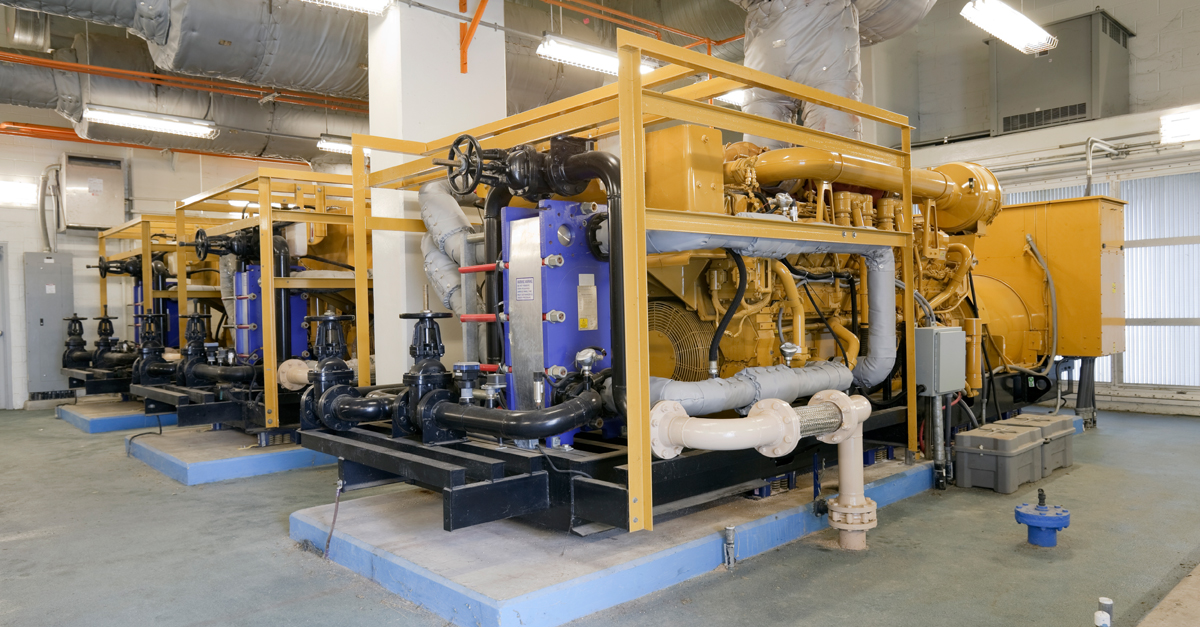Backup options for electricity and internet connectivity are imperative for facilities in today’s complex and fast-paced business landscape. And among all facilities, none face a more critical demand for a constant and robust power supply than healthcare facilities.
Healthcare facilities must be ready for the worst, from power outages resulting from earthquakes, hurricanes, and other natural disasters to manmade disasters like the toppling of a utility pole or the failure of an aging power grid. Whatever the cause, healthcare facilities, especially hospitals, absolutely must remain operational to save the lives and protect the health of their patients.
Power loss not only impacts patient care, it also affects heating, cooling, security, lighting, and communication systems, and it jeopardizes the integrity of drugs and lab specimens that require precise temperatures. For these reasons, it’s not a choice but a legal requirement for healthcare facilities to have backup generators in case of power loss.
Managing generator challenges
Relying solely on generators, however, isn’t a guaranteed solution to power loss and brings its own set of challenges.
Generators must comply with regulations. Users must choose them carefully, so they have the right features to serve a facility’s exact needs. Maintenance is another consideration, as generators can be complex to care for and keep in optimal working condition.
Fortunately, facility managers have developed standards and best practices to guide healthcare facilities in navigating the complexities of backup generators. This article outlines the key requirements for generators used in hospital settings, the factors to consider when selecting a generator, and the best practices for maintaining peak performance of a generator.
Understanding generator requirements
Hospital facility managers can’t procure any generator. They must purchase a generator that can automatically kick in and provide power to critical systems powered by diesel, natural gas, propane, or solar energy. Necessary fuel must be available on-site to allow the generator to run uninterrupted. Generators for hospitals must also have a monitoring system to alert staff of problems.
For these reasons, the first step in implementing backup generators for hospitals involves adherence to strict standards set by the National Fire Protection Association (NFPA) Life Safety Code, or the NFPA 101. Among other requirements, the code mandates that backup power to life-critical equipment must be restored within 10 seconds, and hospitals must have enough fuel on-site for emergency operations for a period of 96 hours.
Additional requirements for hospital generators include:
- A specific standby rating, and planned use as an alternative or backup rather than a primary power source
- Ability to continually operate for a minimum of 96 hours to guarantee uninterrupted power during prolonged outages
- A 10-second-or-less transfer time to ensure quick restoration of power
- Ability to power critical systems that include life-support equipment, lighting, ventilation, and communication systems, and ability to handle peak loads during power outages
- An automatic transfer switch to enable a seamless transfer to backup power, without manual intervention
- Ability to operate with low noise so as to not affect the well-being of patients.
Selecting a backup generator
The next step in implementing a backup generator involves careful consideration of factors such as size, fuel type, and location to choose the best model.
- Size: Calculating power needs for hospitals must be done precisely and include an in-depth understanding of a facility’s regular and emergency equipment power requirements. For this reason, it’s important to collaborate with facility management professionals to ensure alignment with a facility’s exact needs.
- Fuel type: Backup generators for hospitals generally use one of two main types of fuel—diesel or natural gas. Diesel generators are versatile and sturdy, but they require the regular delivery of diesel fuel and on-site storage of this fuel, which has a limited shelf life. Natural gas generators typically are quieter and burn fuel more cleanly. As they can connect to a main gas utility, hospitals don’t need separate fuel storage and can access fuel more easily during an emergency. But these generators require more maintenance than diesel generators, and during situations such as natural disasters the main gas utility might be shut off and stop the supply of fuel.
- Location: Because a generator needs protection from the elements, most hospitals designate a specific room for their generators. This room must adhere to local building, fire, emissions, and zoning codes. When choosing a room, consider vibration impact, accessibility to trained staff, and good ventilation and sound mitigation.
Maintaining a backup generator
A final step involved in implementing backup generators for hospitals is maintaining and keeping them in optimal operating condition. The NFPA has established generator regulations and best practices to guide safe generator use across various industries.
- Conduct weekly inspections and monthly tests. Weekly inspections allow for the early identification of glitches while monthly tests provide a more thorough assessment to detect more latent problems.
- Train staff. A trained team equipped to inspect, test, repair, and maintain generators is imperative. Rigorous and regular training guarantees the availability of qualified personnel to validate generator operation and emergency readiness.
- Position generators carefully.
- House generators in protected, weatherproof enclosures, not on rooftops or in basements. Limit access to authorized personnel to prevent tampering or damage.
- Manage fuel levels closely. Because diesel generators depend on gas deliveries, the supply can be at risk during an emergency when trucks can’t deliver. Diesel fuel stored on site will go bad if it’s stored for over two years. Alternatively, because natural gas generators connect to a gas utility, these generators’ supply might be shut off during a natural disaster. These risks make monitoring fuel levels essential.




